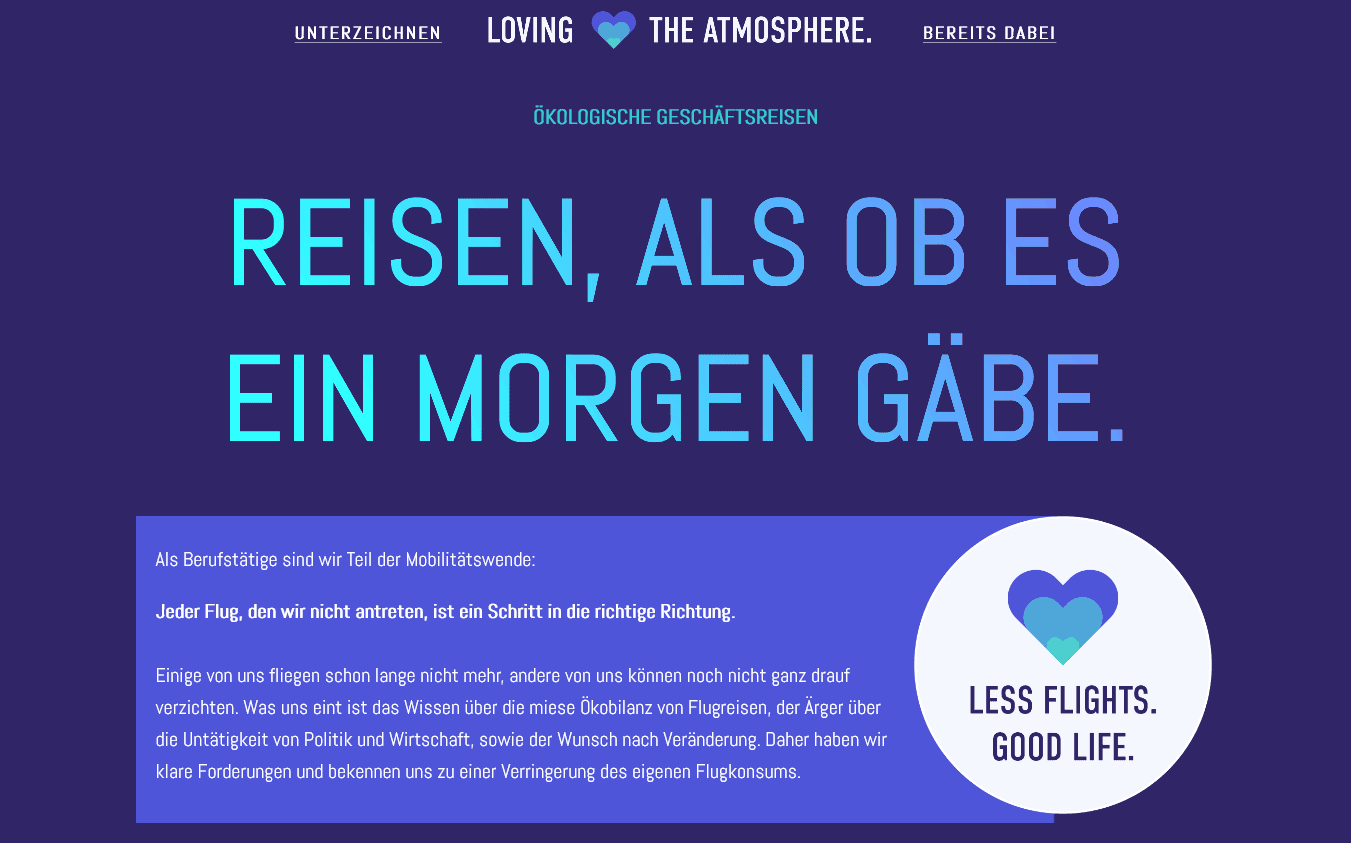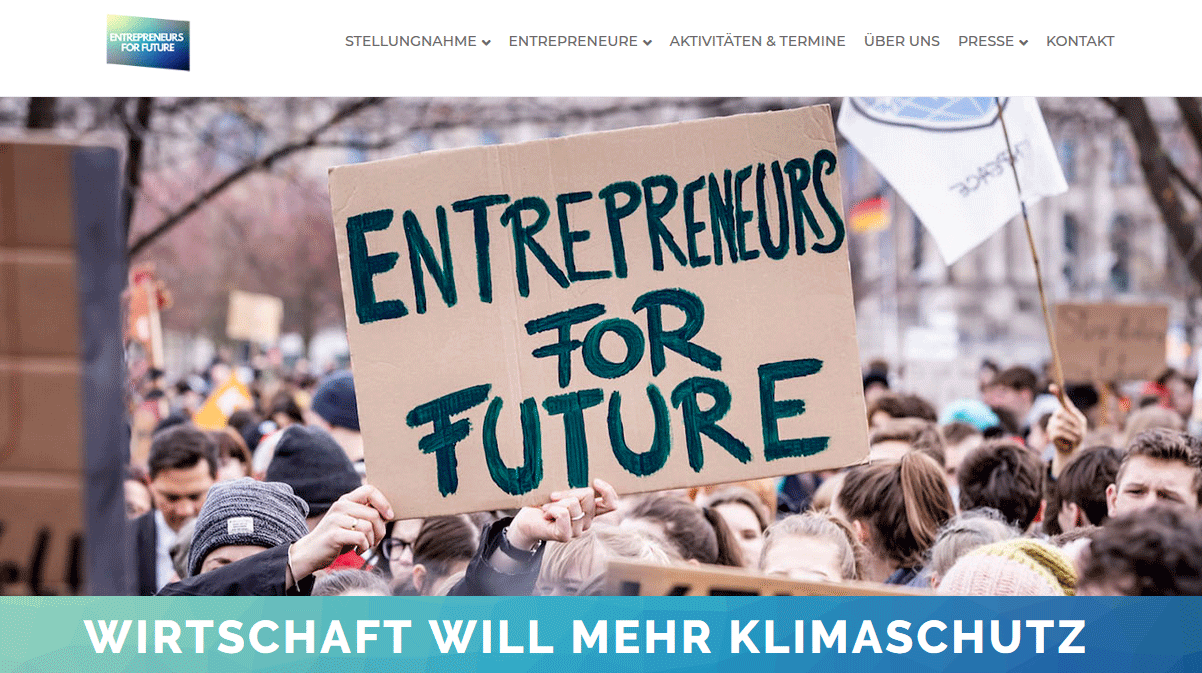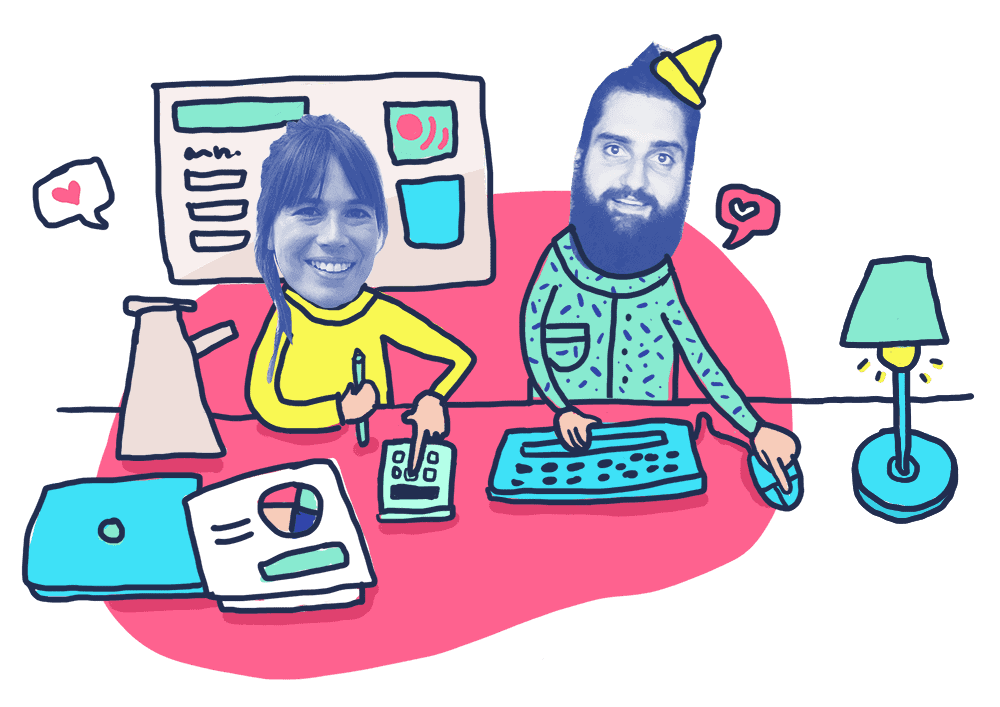More and more freelancers and agencies want to work sustainably. But what does that actually mean? And which measures are best suited? Stephie Keilholz and Philipp Stakenborg from the agency Das Gute Ruft tell you more in our interview.
As a creative agency for sustainable companies and projects you want to set a good example. What are the most important levers in your office or at work to do good yourself?
On the journey to sustainability, there are many smaller and larger steps that companies and organizations can take. The good news is that the journey is a hell of a lot of fun, good for the world, and more meaningful to employees than, say, a fancy office with foosball.
Optimize website sustainably
Our office runs on green electricity, just like our sustainable WordPress hosting at Raidboxes. Data protection is very important to us, which is why our website doesn't use any trackers, cookies or data octopi. A positive side effect: per page view, only about 0.46g CO2 are emitted, which is 76% better than the average (see the website carbon calculator).

We avoid plastic waste, unnecessary new purchases and are big recycling fans. As a starting point, we can recommend other companies to jointly participate in monthly challenges such as Plastic Free July. This way, climate protection becomes the focus of all employees.
A very large adjusting screw - even if it only indirectly affects the office work - is the topic of nutrition: We eat a purely vegetable-based and largely regional diet. Since this year, we've even been using part of our own vegetable garden. The first harvest, however, was still quite manageable. If you want to start small, you can introduce a plant-based Thursday and discover vegan dishes together as a team. In addition, companies can opt for purely vegan catering at events. Ideally, this should also be low waste, i.e. with little packaging waste.
Business travel is another major factor in the carbon footprint: 21,400 such activities take off every hour in Germany alone, or almost 187.5 million business trips per year. Flying is the most climate-damaging way to get to a business meeting. Therefore, it is worthwhile to travel by train. For many meetings, a digital meeting is also suitable.
Business travels as a lever
This is not only good in terms of sustainability, but also relieves employees from too much travel stress. In 2017, we ourselves decided to stop flying, both privately and professionally. In the summer, we launched a campaign to this end: www.lovingtheatmosphere.org.

Companies should support their employees in choosing sustainable means of transport and provide incentives for more sustainability. For example, special leave for employees who forgo business flights and take the train instead.
How employees get to work each day also has a major impact on their carbon footprint: daily commuting by train or bicycle is much more sustainable than by (company) car. Home office days or full-time remote work can also reduce emissions.
Tip: Working remotely or in a home office comes with some challenges. You can read more about this in our blog post Working remotely: Advantages & disadvantages for employees and companies.
The topic of further education can also be "green" charged. Attending events in the eco-social cosmos regularly gives us new impetus. And it promotes the transfer of knowledge in our own sustainability efforts.
Those who already have the above-mentioned levers in the focus of their own entrepreneurial activities can also join initiatives such as Entrepreneurs 4 Future. Or sign the Sustainable Web Manifesto, for example.

Last but not least, we would like to encourage all agencies, freelancers, companies and employees to take to the streets for climate protection. Fridays for Future is calling for the 4th Global Climate Strike on November 29. Of course, we will be there too!
Select suppliers
It's not always that easy to find good sustainable suppliers. For example, we spent a long time researching what has a better eco-balance: Cloth towels vs paper towels vs reusable towel rolls for employees. What is your approach to finding the "greenest" solution in each case?
Research is not always easy as there are still many "unsustainable solutions" out there. We would be thrilled if suppliers, tools and products would indicate the ecological footprint. But that is probably still a vision of the future at the moment.
We always keep our eyes and ears open for manufacturers who are already pioneering today. Trade fairs also bring us into contact with good service providers. For example, the Green World Tour.
Tip: Can there even be a sustainable internet? And how "green" is WordPress ? Read more about this in our article on WordPress and sustainability.
Some criteria help us in the selection process:
- Does the company use green electricity?
- Has the company prepared a Common Good Balance sheet?
- If it is a physical product: where does it come from, how long is the journey? Under what conditions was it produced? How durable is it?
- Are sustainable materials really used? This point in particular is tricky, as there are many seals and certifications, not all of which necessarily identify truly ecological products.
- Is it possible to buy the product second hand?
- How do others do it who also make similar demands on sustainability as we do?
And of course always the question: do I really need it? Because the most sustainable thing is when something doesn't have to be produced in the first place.
Does ecological-social action really lead to more costs, so that smaller companies are at a disadvantage here? Or is this a bogus argument?
No, eco-social action does not necessarily lead to additional costs:
- Sustainable providers of online services or products are not necessarily more expensive.
- Sustainable products are generally more durable than conventional products
- Paying attention to sustainability in all areas of the company can be very economical: less marketing material produced, no disposable products that have to be bought again and again, energy-saving lighting, etc.
If you consider that the actual costs (working conditions, ecological destruction, etc.) are not taken into account by most suppliers, then we should always choose an ecological-social supplier, even apart from the money factor.
Green hosting
You rely on the green WordPress hosing from Raidboxes. How did you come up with it? And how satisfied are you with your hosting, apart from the environmental aspect?
We are super satisfied with Raidboxes, and even more enthusiastic: performance, support, company values - with you we have found our absolute favourite hosting provider. Word of good things gets around: We came across you through a recommendation from our eco-social network. They were enthusiastic about your Dashboard, the performance and also your affiliate system.
Das Gute Ruft is an eco-social creative agency. Who are your clients?
Our clients include the petition platform Change.org, the Social Entrepreneurship Network Germany(SEND e.V.), the engagement platform vostel and the Wiesbaden Environmental Agency. What these projects have in common is that they address the pressing issues of our time. And that they strive for positive change on a social and/or ecological level.
Select customer projects
Do you select your clients yourself? Do you also reject projects if they do not meet your criteria for sustainability?
We are a values-driven agency and work exclusively with ecological or social projects. To check whether a new project request fits us, we first take a look at the mission and vision of the organization. And we take a closer look at the website and the product or service.
We clarify which of the 17 goals (SDGs) are being pursued, in which framework the project is taking place and who the partners or sponsors involved are. This gives us a good feeling whether we are the right agency for the project. If it is not the right fit, we will decline the request: We only offer what we are convinced of. And we don't support anything that doesn't help the world or our clients.
There are already enough agencies out there that put profit at the top of their business goals. We believe that more value-driven agencies are needed. Because as creative service providers we can directly participate in improving the status quo.
A few words about you and your team?
Behind Das Gute Ruft are Stephie Keilholz and Philipp Stakenborg. After years of both working in conventional marketing jobs and agency projects, we founded our eco-social creative agency in April 2018. To focus our work on the organizations that work for a better world.

We believe strongly in the transformative powers of design and good marketing. Both disciplines have the ability to simplify communication, enhance experiences, engage and inspire people.
Your questions about sustainability
What questions do you have? Feel free to use the comment function. Want more tips on WordPress & WooCommerce? Then follow us on Twitter, Facebook or via our newsletter.
